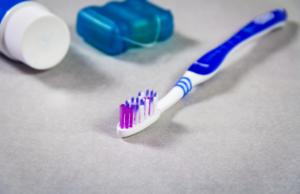Cavities are all too common, even with today’s modern oral hygiene options. They can occur in people of all ages, and untreated cavities can lead to problems ranging from gum disease to tooth loss. Although some people seem to have a higher natural tendency towards cavities, no one is immune. Fortunately, following some simple tips can help to reduce the chances of a cavity.
Proper Brushing and Flossing
Proper home care remains the single biggest way to reduce your risk for cavities. Brush your teeth at least twice per day. Rinse your mouth with plain water after meals and snacks if you are unable to brush right away. Floss once per day to remove debris from your gum line and between your teeth.
Professional Treatment
Have your teeth professionally cleaned twice per year or as instructed by your dentist. You will also receive a checkup during these visits. This removes plaque and tartar that are hard to remove at home, and allows your dentist to catch new issues before they become serious.
Medicated Mouthwash
If you are cavity-prone, consider using a medicated mouthwash once or twice per day. If you choose an over the counter product, read the label to ensure that the mouthwash contains active ingredients that fight cavities rather than just breath fresheners. Prescription formulations are also available, so talk to your dentist about your options.
Eat and Drink for Dental Health
Bottled water is exceptionally popular, but fluoridated tap water is better for your teeth. If your water supply is safe but not tasty, try using a home water filter or adding unsweetened flavoring to each glass. Unsweetened coffee and tea are also reasonable alternatives.
Eat plenty of fresh fruits and vegetables, as well as hard candy. These items, along with unsweetened gum, help to stimulate saliva production. This flushes away food particles and debris. Limit foods that tend to stick on or between teeth, including cookies, chips, and sticky candy. When you do eat these foods, rinse your mouth afterward and brush your teeth as soon as you can.
Ask About Dental Sealants and Fluoride Treatments
A dental sealant is a protective plastic coating for the back teeth. It seals off the grooves on the chewing surfaces that tend to harbor bacteria. Dental sealants are generally recommended for children, but may also be useful for teens and adults who are prone to cavities. A dental sealant has a lifespan of around 10 years, but should be replaced sooner if it starts to crack.
Most people get an adequate supply of fluoride from toothpaste and tap water, but those who are cavity-prone may need a bit of extra help. Ask your dentist if fluoride treatments are right for you.
Cavities are a sign that the tooth surface has started to decay. When caught quickly, they can be filled, halting the damage. However, the best solution to the problem of cavities is to prevent them from developing. While you may not be able to stop every single cavity, following the tips above can dramatically reduce your cavity risk.
Conveniently located in Woodbury, MN, Creekview Dental provides a progressive yet conservative approach to dental care. Our innovative, highly personalized procedures are focused on maintaining tooth structure and providing you with the healthy, beautiful smile you deserve. Call us today at 651-738-8204 to take the first steps on the road to better dental health.

